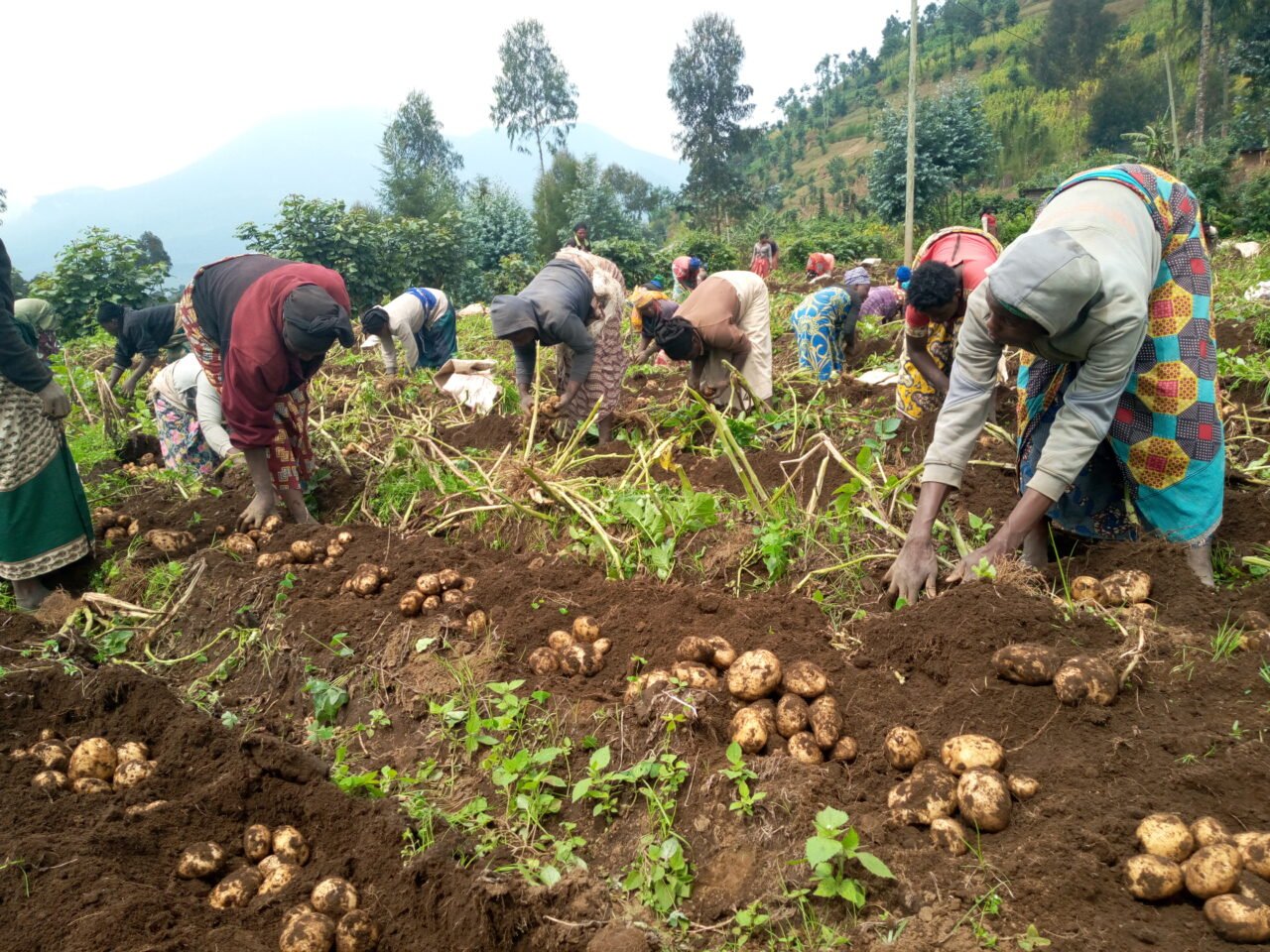Rwanda Soil Information System Launched to Revolutionize Agricultural Productivity
By Zablon Oyugi
The CGIAR Excellence in Agronomy Initiative (EiA) collaborated with the Rwanda Agriculture and Animal Resources Development Board (RAB) and other partners to officially launch the Rwanda Soil Information System (RwaSIS).
The platform includes tailored fertilizer recommendations for crops such as potatoes, rice, maize, wheat, beans, and cassava. These recommendations address each crop’s specific nutrient requirements and enhance soil fertility management across the country.
RwaSIS, a comprehensive soil information platform, provides farmers with accurate soil data, enabling them to make informed decisions on soil health and fertilizer use (https://rwasis.rab.gov.rw/#home). This service will help farmers optimize their input use, improve crop yields, and contribute to sustainable agricultural practices in line with Rwanda’s commitment to food security and climate resilience.
This collaboration with the CGIAR Excellence in Agronomy Initiative and the Rwanda Soil Information System launch marked a milestone in strengthening Rwanda’s agricultural sector. “By providing farmers with reliable soil data and tailored fertilizer recommendations, we paved the way for more efficient and sustainable farming practices, boosting productivity and contributing to the country’s food security goals ,” said Dr. Bester Mudereri, Data Science Agronomist at International Potato Center (CIP).
Designed to provide data-driven insights into soil nutrient management and fertilizer recommendations, RwaSIS will significantly enhance agricultural practices across Rwanda. Through this innovative system, farmers, policymakers, and investors can now access precise, site-specific fertilizer recommendations tailored to each of Rwanda’s agroecological zones.
The integration of RwaSIS with Rwanda’s existing Soil Nutrient Mapping System (SNS) ensures farmers receive fertilizer recommendations tailored to priority crops. Guidance is already available for potatoes and rice, with maize and wheat to be added in 2025 and beans and cassava planned for the near future.
By leveraging up-to-date, localized soil data, RwaSIS provides stakeholders with essential tools to enhance soil health, increase crop yields, and promote sustainable farming practices.
Key Features of RwaSIS:
- Site-Specific Fertilizer Recommendations: Farmers will receive personalized fertilizer plans based on detailed soil data across Rwanda’s diverse agroecologies.
- Web Interface & API Integration: A user-friendly interface will allow easy access to fertilizer recommendations, with seamless synchronization from the RwaSIS portal.
- Farmer Engagement Tools: A dedicated USSD system will enable smallholder farmers to access key information on soil health and crop management directly from their mobile phones through the Rwanda Smart Nkunganire system (https://smartnkunganire.rw/).
- Support for Priority Crops: RwaSIS covers critical crops, including potato, rice, maize, wheat, cassava, and beans, offering tailored guidance for each.
The Rwanda Soil Information System (RwaSIS) was created by the Rwanda Agriculture and Animal Resources Development Board (RAB), with support from the CGIAR Excellence in Agronomy Initiative (EiA) and BKTecHouse. The EiA is backed by IITA and CIP in Rwanda. RwaSIS helps farmers by giving them accurate information about their soil and offering fertilizer suggestions that are just right for their land. This helps improve soil health and boosts crop production.
The launch of RwaSIS was made possible through a strong partnership between the Ministry of Agriculture, CGIAR Excellence in Agronomy Initiative (facilitated by International Potato Center and International Institute of Tropical Agriculture (IITA), and various local stakeholders, all committed to improving agriculture in Rwanda.
Through continued collaboration with EiA and BKTecHouse, RwaSIS is poised to become an essential tool for decision-makers. It will help Rwanda achieve its agricultural goals and empower farmers with the knowledge needed for success in a rapidly evolving agricultural landscape.
“We are excited to partner with Rwanda in supporting sustainable farming practices through science-based agronomic solutions,” said Dr. Job Kihara, co-leader of CGIAR Excellence in Agronomy Initiative. “The Rwanda Soil Information Service will empower farmers to adopt targeted soil and fertilizer management strategies that enhance productivity and environmental sustainability.”
The RwaSIS platform and fertilizer recommendations mark a crucial step forward in Rwanda’s efforts to transform its agriculture sector into a more resilient, productive, and sustainable system that can meet the population’s growing demands.



